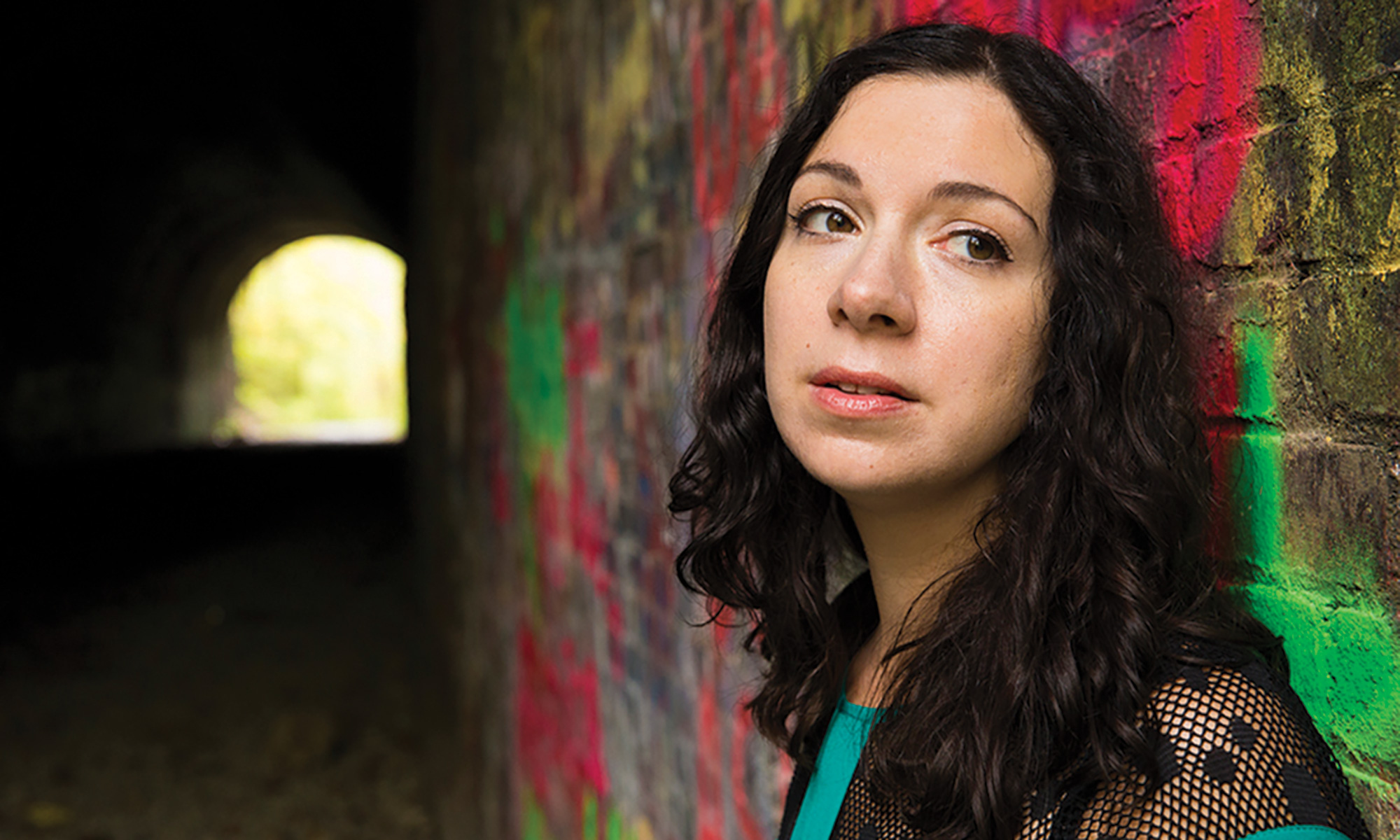There isn’t a magical muse,” says Alison Stine ’00, staff culture writer for Salon, novelist, and poet. When asked what she’d call the entity energizing her work, she gives it a humble, familiar name: rent.
A note of bathos, a note of truth. But Alison Stine “writes for a living” in more than the surface sense.
At her day job, she tells others’ stories and makes connections with artists of all sorts. But when she’s not sharing a cry with Jamie Lee Curtis after an interview for Salon, she’s hard at another kind of work: creating worlds, populating them, propelling plots. Dreaming new dreams. Letting drafts take shape with no outline — for, as writer R.L. Stine (no relation) once observed of her, she’s “looking to be surprised.” Sometimes she’s down in the weeds, printing and hand editing.
That is all to say — she’s writing novels.
It was a lifelong dream, being a novelist. As Stine says, “That’s also the one genre I never studied. So, to write fiction is all I know of freedom.”
Now she’s preparing Dust for publication, her third novel in as many years. She wakes up early, carving out time to write before she takes her son to school.
“You have to get in a state where you’re giving everything inside you,” she says. “More than you think you have — that’s the magic part. But at the same time, knowing people are counting on me helps me keep going.”
Reynolds Young Writers Workshop
The Reynolds Young Writers Workshop at Denison is an energizing 8-day program for motivated high school students (rising juniors and seniors) who love to write. The workshop is held each June on campus in Granville, Ohio.
People — counting on her, cheering her on, connecting through stories — are the other side of Stine’s practical muse. At Denison, she forged relationships with professors emeriti Dominick Consolo and Richard and June Kraus, “extra grandparents” who offered encouragement and guidance. Now Stine brings that same energy back to campus, returning in the summers to teach at the Reynolds Young Writers Workshop.
It’s a role close to Stine’s heart, an opportunity to show students that there is no “one or right way” to be an artist. “I think it’s important for students to see someone who is openly queer and physically disabled,” Stine says. “I want to always be open with students about my partial deafness because you never know who’s in your classes, you never know what they need from you — you never know when you might be ‘the first’ or only for them.”
Stine hopes that her own stories help people feel less alone. Her novels Road out of Winter (2020, a Philip K. Dick Award winner), Trashlands (2021), and the forthcoming Dust (2023) are all considered “cli-fi,” set in worlds variously afflicted by climate change. Though no such neat term casts a net wide enough for all of Stine’s work — fiction, poetry, and journalism — a shared spirit glimmers through it.
As she puts it, “I think my work across genres is for someone who understands the darkness of the world but also keeps looking for the light.”

